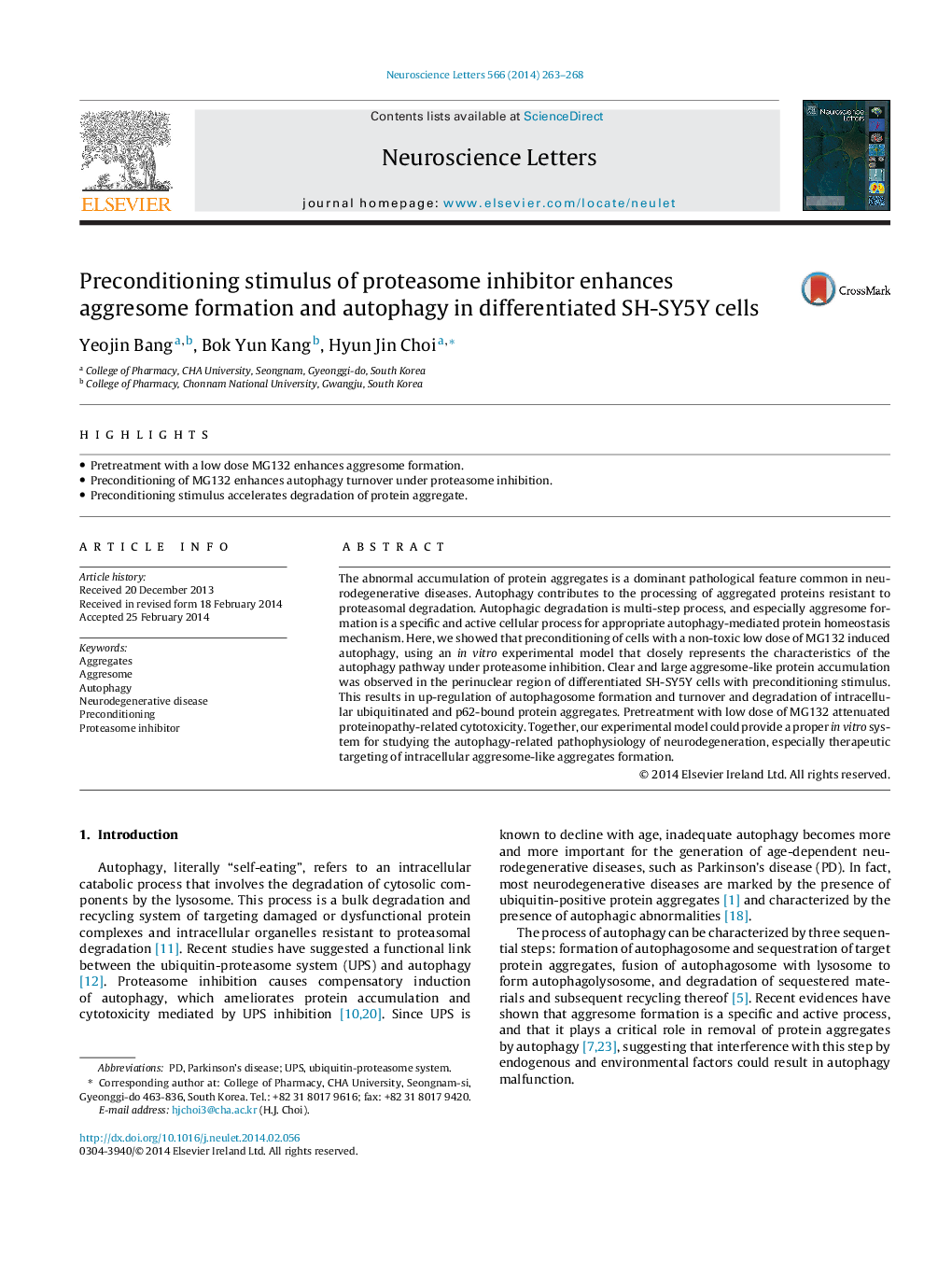| Article ID | Journal | Published Year | Pages | File Type |
|---|---|---|---|---|
| 6282191 | Neuroscience Letters | 2014 | 6 Pages |
â¢Pretreatment with a low dose MG132 enhances aggresome formation.â¢Preconditioning of MG132 enhances autophagy turnover under proteasome inhibition.â¢Preconditioning stimulus accelerates degradation of protein aggregate.
The abnormal accumulation of protein aggregates is a dominant pathological feature common in neurodegenerative diseases. Autophagy contributes to the processing of aggregated proteins resistant to proteasomal degradation. Autophagic degradation is multi-step process, and especially aggresome formation is a specific and active cellular process for appropriate autophagy-mediated protein homeostasis mechanism. Here, we showed that preconditioning of cells with a non-toxic low dose of MG132 induced autophagy, using an in vitro experimental model that closely represents the characteristics of the autophagy pathway under proteasome inhibition. Clear and large aggresome-like protein accumulation was observed in the perinuclear region of differentiated SH-SY5Y cells with preconditioning stimulus. This results in up-regulation of autophagosome formation and turnover and degradation of intracellular ubiquitinated and p62-bound protein aggregates. Pretreatment with low dose of MG132 attenuated proteinopathy-related cytotoxicity. Together, our experimental model could provide a proper in vitro system for studying the autophagy-related pathophysiology of neurodegeneration, especially therapeutic targeting of intracellular aggresome-like aggregates formation.
